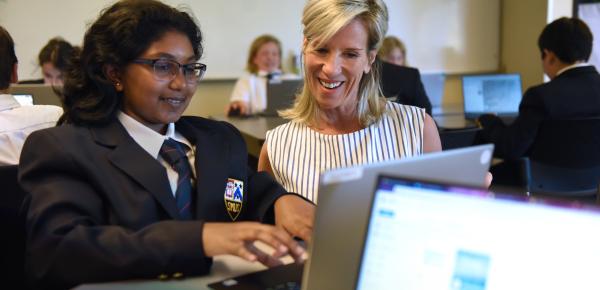Middle School Assessment
Learning and assessment at our Middle School is personalized and is centred around personalization and self-reflection so students know themselves as learners.
We know that students learn in different ways, and that they present their knowledge in different ways, too. Because of that, assessment looks different at the SMUS Middle School than it might at other schools. There are no letter grades, but students will receive feedback from teachers on assignments and tests based on a scale of proficiency for that unit.
Personalization
Although students are encouraged to take ownership of their learning, this is accompanied by an approach where teachers make a personalized plan to give each student extra assistance or additional challenges when they might need it. Teachers at SMUS get to know each student and work with their passions, strengths and opportunities for further growth. In addition, the Learning Resource team provides students with support that may be required to ensure their full potential and success at the school.
No Letter Grades
Students receive feedback – not grades – on projects, report cards, and other assignments. Instead of receiving a letter grade or a percentage, feedback is based on a proficiency scale for specific curricular outcomes for certain units of study.
Report cards list learning outcomes and how well students are doing related to each outcome, along with feedback from teachers. Students know the specific areas where they have a strong understanding and areas they still need to work on. With this information, students get into a mindset of "this is what I can do to improve." They find out exactly where they are, where they need to go and how to get there. This approach sets them up for success at Senior School.
Student-Teacher-Parent Conferences
We want students to use feedback from teachers to set goals, so it's important that they are involved every step of the way. Student-Teacher-Parent (STeP) conferences put students at the centre of the conversation by having them involved. Involving the student at STeP Conferences means they take ownership of their learning and set goals with the support of their parents and teachers.
Reflection
Students regularly reflect on their learning and their experiences. Doing so allows them to better remember what they’ve learned. Reflecting on their academics and experiences is tied to their sense of identity and how they fit into the community, which is crucial at their age.
